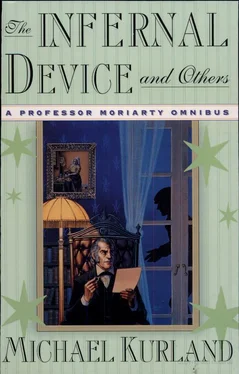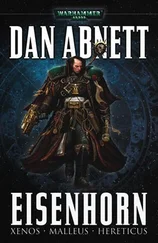"There is no turning back," they repeated.
"You are completely dedicated to our sacred cause?"
"With our hands," they replied in unison, "with our heads, and with our hearts!"
"So do you each, separately, swear?"
"I do," each of the three answered, separately.
"On your life?"
"On my life."
"And on the lives of your parents and those you hold most dear?"
And then the three swore this solemn oath, although they did it perhaps a bit more slowly.
"Good," the man behind the screen said. "You are now members of the organization which has no name so that it cannot be betrayed. You will know only each other. You will make no attempt to find out my identity or the identity of anyone else who may communicate with you on behalf of the organization which has no name. You will obey orders willingly and without hesitation, no matter what the order might be. You will do this so that your children will be free.
"The penalty for disobeying orders is death. "The penalty for betrayal is death. "The penalty for failure is death. "Are there any questions?"
The three shuffled nervously and looked at each other. "These orders," one of them finally asked; "how may we know that they come from you?"
"You are Gregory?" the man behind the screen asked.
Gregory nodded, then, realizing that the man behind the screen couldn't see him, said, "Yes."
"Good. You will be the leader of this cell. You will be taught a simple cipher and a series of code words. Orders will then be given to you to be passed on to the others."
Gregory nodded again. "That is good," he said.
"Go now," the man behind the screen said.
The three left, and the man behind the screen went to a small concealed panel in the wall and opened it and stared pensively through. When he had satisfied himself that the three had indeed left the building, and not merely the room, he closed the panel and used the candle to light the two gas fixtures on the wall. A few seconds later another man — tall, thin, ascetic-looking, dressed like a clergyman — entered the room through the door behind the screen. "Well?" he said.
"We'll see."
"They'll do," the tall man said.
"Anyone will do! Men are just tools. Handled properly, they will do the job you put them to; handled wrong, they will botch it."
"For some jobs," the tall man murmured, "you need the right tools."
The other considered this. "True," he said. "I mustn't commit the error of believing that all my — tools — are interchangeable. There is one job that has eluded success several times now."
"Moriarty."
"Yes. The professor of mathematics. Hirelings have not proved capable of handling him. I have avoided using our own people for fear that if they fail, they would lead him inevitably back here. We must assume that he is as cunning as we have been told, although I have seen no remarkable signs of it. He seems to escape our — arrangements — mostly by blind luck."
"Perhaps he is prescient," the tall man suggested. "Like that gentleman at the Music Hall who reads minds."
"I thought he was for a moment," the other said, "when I found that he had followed me to Constantinople. But it was pure chance. Pure chance."
The tall man sat down at a table by the far wall. "I have had a reply from St. Petersburg," he said.
"Ah, yes," the other said. He lit a small cigar and then blew out the candle. "And it said what?"
"The skilled men you require have been located. Transportation is being arranged."
"Excellent!"
"They do not speak English."
"No matter. It would be best if they did not speak at all, but that is too much to be hoped. How long?"
"Before they arrive, you mean? I don't know. It didn't say. Soon enough, I imagine."
"It cannot be soon enough. Training should have begun already. We cannot leave anything to chance. My plans are complete, and we commence the operation at once."
"What of Moriarty?"
"He is one of the only two men in London — in England — that could stand in our way. The police — bah! They are ill-trained incompetents. The infamous British Secret Service is otherwise occupied at present. But Professor James Moriarty, whom our brothers have seen fit to employ against us, and that notorious busybody, Mr. Sherlock Holmes, are very real threats. At the least they threaten to expose us, and discovery is tantamount to failure."
"Sherlock Holmes, the consulting detective?"
"Yes."
"He is aware of us?"
"Mr. Holmes has stumbled across one or two of our activities without realizing what they were. Curiously enough, he insists upon attributing them to Professor Moriarty. They seem to dislike each other. But Mr. Holmes is an astute observer, usually with an uncanny ability to draw the correct inference from a mass of seemingly unrelated data. He is sure to be called in to investigate certain aspects, certain outward manifestations, of our great plot as it progresses toward fruition. If so, it is possible that he will ascertain the truth. And if he fails, then we shall still have the professor of mathematics dogging our heels."
The tall man nodded thoughtfully. "It is clear that these two threats must be removed," he said.
"A successful commander," the other said, "uses his enemy's strengths against him. These two men represent our enemy's greatest strength; and I think I have devised a way to use them against each other. It requires but minor revisions in the great plan."
"Perhaps we should just have them removed," the tall man said. "Dead men cannot cause trouble."
"Dead men also cannot help," the other replied. "In my new plan the professor of mathematics and the consulting detective will unwittingly aid us. And then they will die. It will be humorous, no?"
"Show me!" the tall man demanded.
The other took out a small notebook. "Follow the scheme," he said. "See how the pieces fit together and one follows naturally from the one before. All culminating in the Supreme Act. It is elegant."
"Trace the steps," the tall man said.
"Listen!" the other commanded.
And he talked long into the night.
THIRTEEN — FLEET STREET
The moving finger writes…
— Omar Khayyam
London wears her history on her streets: the buildings, the facades, the monuments, the heroic statuary, the ornamental ironwork, the street signs, and even the paving stones. But especially the street signs. In any given mile, an average London street has only twelve blocks, but it can change names three times. As Oxford Street, for example, heads east, it becomes in turn New Oxford Street, Holborn, High Holborn, Holborn Viaduct, Newgate Street, Cheapside, and Poultry. And all of this in under two miles.
Benjamin Barnett, used to the grid-pattern uniformity of New York or the great boulevards of Paris, found the zigzag maze of London streets a constant delight. Each street, sometimes each block, had its own character, its own air, its own voice. Barnett walked the streets as much as he could over the next few weeks, trying to attain that distinctive intimacy with the city that would make him a good reporter. To know London intimately, of course, would take years, and even then he would really know only that part of the city which had become his "beat."
But if he was going to do his job, to help the professor in his search for the abnormal, he was going to have to learn what was normal in this, the largest city in the world and the center of the world's greatest empire.
Learning what was accepted was not difficult: the standards were pretty much the same over the civilized world these last decades of the nineteenth century. But the uncivilized world did not begin in Asia or darkest Africa; it peered around the corner in Lambeth, it waited in alleys in the East End, it skulked along the wharves and docks fronting the Thames. So Barnett had to go beyond what was accepted; he had to know what was condoned, condemned, controlled, misunderstood, overlooked, winked at, persecuted, prosecuted, and ignored. In these places lies the job of a reporter. It is in the interconnection of these elements that news is created.
Читать дальше












